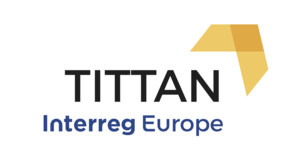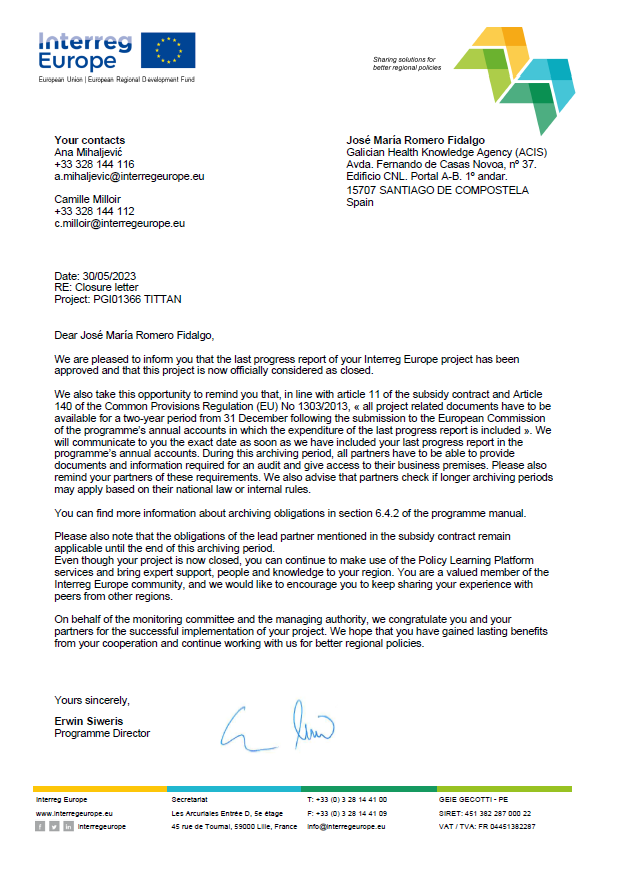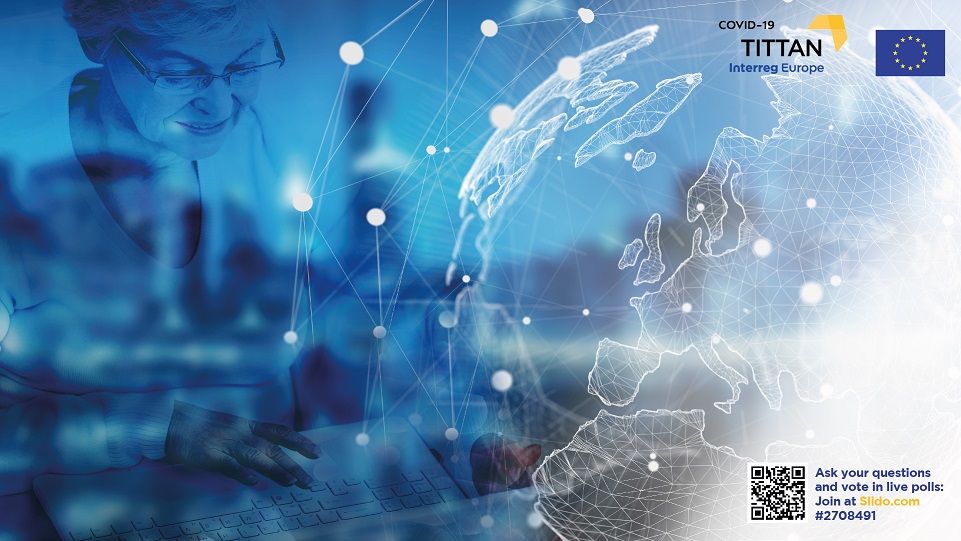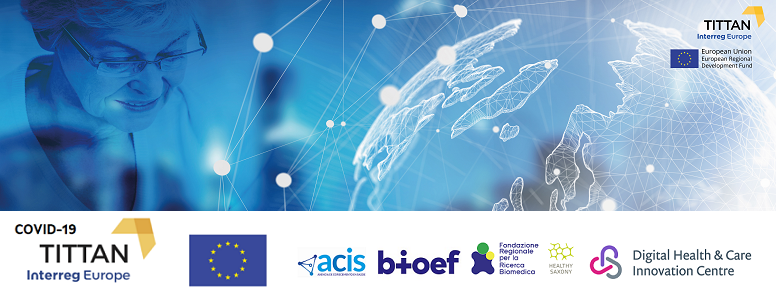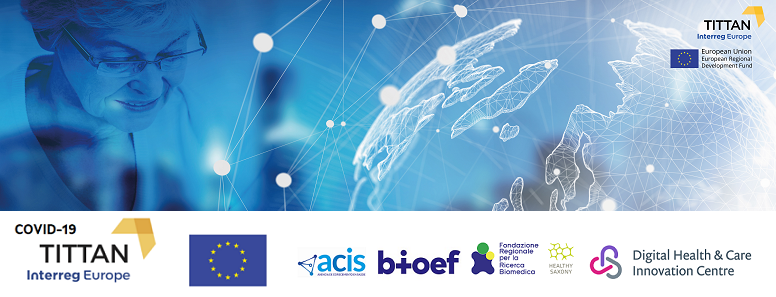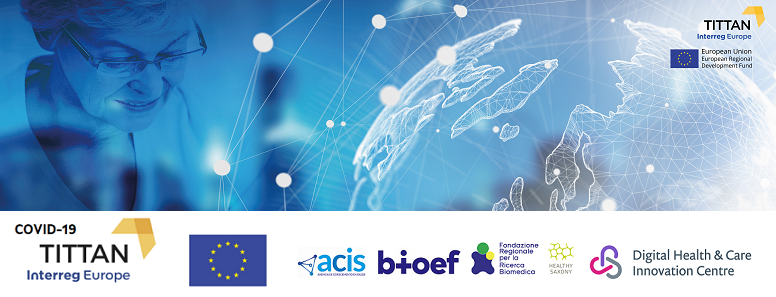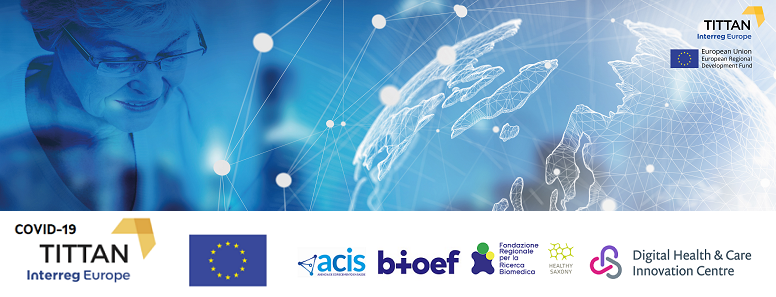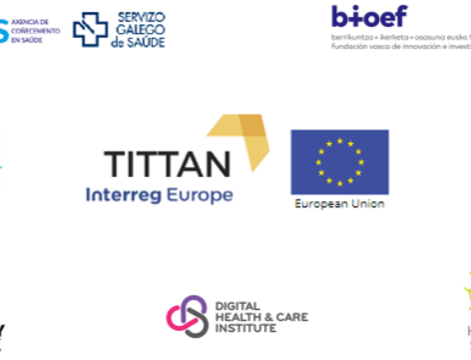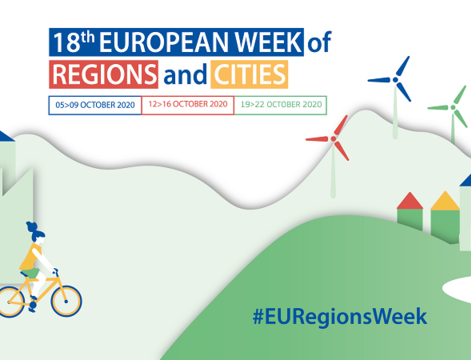The European delegation, consisting of Polish and Scottish representatives, acquired in-depth knowledge of the Good Practices presented within the third thematic area: Active Citizens for Healthy Ageing. In this area, practices aiming to boost citizens' awareness and knowledge in relation to the use of new technologies to improve their quality of life were presented. The host HEALTHY SAXONY introduced through its partners and stakeholders the telemedicine platform "CCS Telehealth Ostsachsen", some current telehealth projects, the center for healthy ageing at the University Hospital Carl Gustav Carus Dresden as well as the innovative geriatric network GeriNet Leipzig.
DHI - Digital Health & Care Institute, the University of Strathclyde (Scotland) and representatives from the Lower Silesian Voivodship (Poland) took part in the visit.
On the first day, Dr. Olaf Mueller presented the work of the healthcare region Carus Consilium Sachsen. The Healthcare Region Carus Consilium Sachsen aims at connecting partners from about 200 institutions in the field of research, healthcare, patient care, economics and politics. The strong interaction with all partners of the network and the federal government of Saxony is the basis for the successful work of the CCS. The management organization with the same name - Carus Consilium Sachsen GmbH - is responsible for the central coordination and is a subsidiary of the University Hospital Carl Gustav Carus Dresden. Against a background of demographic change, the stabilization of medical care and the modernization of healthcare at the same time will be some of the most important socio-political challenges in the years to come. Carus Consilium Sachsen initiates, regulates and coordinates sustainable healthcare concepts in order to secure and further develop healthcare, especially in rural areas.
One concept is the telemedicine platform "CCS Telehealth Ostsachsen" (THOS) as a European pilot scheme which offers a broad range of possibilities in networked medical care and intends to overcome former limitations in healthcare. To do this, an open and universally applicable IT platform was created, available for the healthcare of an entire region - Eastern Saxony and beyond. Thanks to "CCS Telehealth Ostsachsen" clinics, physicians, nurses, other medical service providers and patients at home can be connected by means of own, secure data networks. Patients can play an active part and communicate with hospital personnel in real time.

Martin Benedict and Dr. Hannes Schlieter from the eHealth-Team at Chair for Wirtschaftsinformatik in Dresden, specialists in System Development, introduced the THOS platform as well as three telehealth innovations in Integrated Care which are currently being developed: Tele-NePS as an electronic Case Record for Psychotraumatology which connects all actors, IBMS – a patient portal for multiple sclerosis to empower patient´s awareness and INAN-SOS – an integration of general practitioners into the SOS-Net to connect digitally urban and rural areas.

Another innovative concept was presented by Juliane Wolf from Leipzig: the GeriNet Leipzig is a regional network for geriatric care with numerous partners, especially in Saxony. It consists of scientists and practitioners of medical, social, nursing, therapeutic and health economic departments. The project GeriNeTrainer aims to increase everyday competence by an activity program in groups and at home, which contains cognitive and mobility exercises for people with first cognitive and motoric impairments, limited everyday skills and diagnosed dementia. GeriNeTrainer is especially offered for people who are 70 years and older. The exercise units take place close to the homes of the participants in different parts of Leipzig. The aim is that everybody can visit the GeriNeTrainer on his own and be more independent.
Furthermore the stakeholder Carus Consilium Sachsen presented some other initiatives and networks to improve healthcare system. The training alliance is a structured postgraduate training towards GP specialization and has the aim to place future GPs in the countryside with an ageing population. Also the service of CCS “Familiengesundheitspaten” which supports voluntary work within families with children aged 0 to 3 was presented.
Finally, the second day was marked by Medical Informatics. Prof. Dr. Martin Sedlmayr, Director of the Center for Medical Informatics of the University Medical Center Dresden, introduced to the Scottish partners the efforts of establishing a Data Integration Center as an ecosystem for medical research and care.
